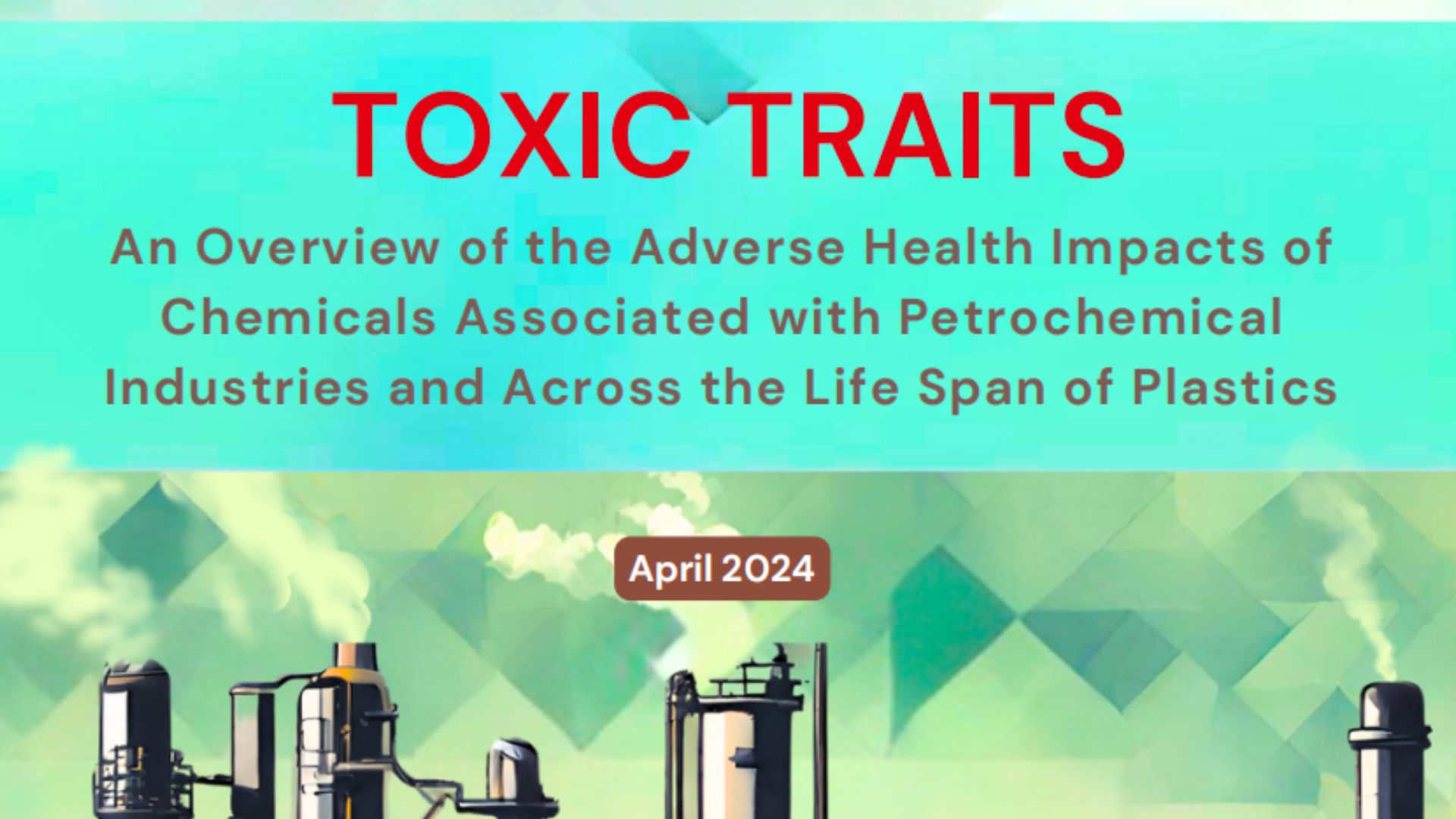An Overview of the Adverse Health Impacts of Chemicals Associated with Petrochemical Industries and Across the Life Span of Plastics.
 The petrochemical industry, once hailed as the harbinger of progress and innovation, now finds itself at the epicentre of critical global discourse. The petrochemical industry is not just about automobiles and cooking fuels. It contributes to an array of products such as plastics, fertilisers, pesticides, fabrics, solvents, chemicals, synthetic rubbers, waxes, dyes and lubricants used across the globe in almost all aspects of life.
The petrochemical industry, once hailed as the harbinger of progress and innovation, now finds itself at the epicentre of critical global discourse. The petrochemical industry is not just about automobiles and cooking fuels. It contributes to an array of products such as plastics, fertilisers, pesticides, fabrics, solvents, chemicals, synthetic rubbers, waxes, dyes and lubricants used across the globe in almost all aspects of life.
Consider the widespread use of plastics as an example. From single-use packaging to durable products, plastics have undoubtedly shaped the modern world, furnishing us with a multitude of conveniences and materials that enhance our daily lives. However, this convenience comes at a cost. For example, the plastic pollution crisis in oceans and waterways discarded plastic products harm marine life and ecosystems. Globally, the Great Pacific Garbage Patch, the largest offshore accumulation of floating plastic debris, located between Hawaii and California which covers an estimated surface area of 1.6 million square kilometres, illustrates the environmental challenges posed by the petrochemical industry.
Similarly, in India, the widespread use of single-use plastics, particularly in packaging has taken a toll on solid waste management and resulted in the plastic waste crisis. The environmental toll is evident in cities like Mumbai, Chennai, Hyderabad, etc., where plastic waste clogs waterways and contributes to flooding during the monsoon season. The health implications extend to local communities, especially those involved in waste management, facing risks of exposure to hazardous substances present in petrochemical-derived plastics.
Beyond the gleaming pipes and sprawling factories lies a complex narrative of adversity, where the pursuit of profit has exacted a toll on the health of individuals and communities alike. Over the years, these industries have expanded their reach across continents, giving rise to economic growth and technological marvels. Yet, this progress has produced many environmental and health challenges. The petrochemical and plastic industries are closely interconnected regarding the use of shared feedstock and chemicals, and the cumulative health impacts of the chemicals emitted during petrochemical extraction extraction and processing which become feedstocks for plastic manufacturing. These chemicals can persist and interact throughout the plastic lifespan, potentially magnifying their health consequences.
Moreover, the health impacts of petrochemical-related activities extend beyond the factory walls and pose serious threats to the public health of the Communities situated near these industries. For instance, in Cancer Alley, a stretch between Baton Rouge and New Orleans along the Mississippi River in the United States where numerous petrochemical facilities coexist with predominantly African American communities, resulting in disproportionately high rates of cancer and respiratory illnesses.
The interconnectedness of the petrochemical and plastic industries in India mirrors the global scenario. As the petrochemical industry has expanded its footprint in India, particularly in states like Gujarat and Maharashtra, has come at an environmental, social and health cost. In places like Jamnagar, home to one of the world’s largest oil refineries, residents have reported adverse health effects, attributing them to air and water pollution from petrochemical operations. Instances of groundwater contamination in regions surrounding petrochemical plants, like in Panipat, emphasise the pervasive environmental challenges.
This report aims to illuminate the profound and often hidden health impacts experienced by residents within the petrochemical and plastics industries.
Additionally, to understand the ground reality of the impacts of petrochemical industries on human health, this report consists of a case study conducted in villages of Panipat petrochemical industrial cluster.
In summary, studying the adverse health impacts of the petrochemical and plastic industries together provides a holistic understanding of the chemical exposures, environmental risks, and public health challenges associated with these interconnected sectors. This will also allow us to formulate comprehensive policies and regulations.
Read and Download the report here: Toxic Traces Report

